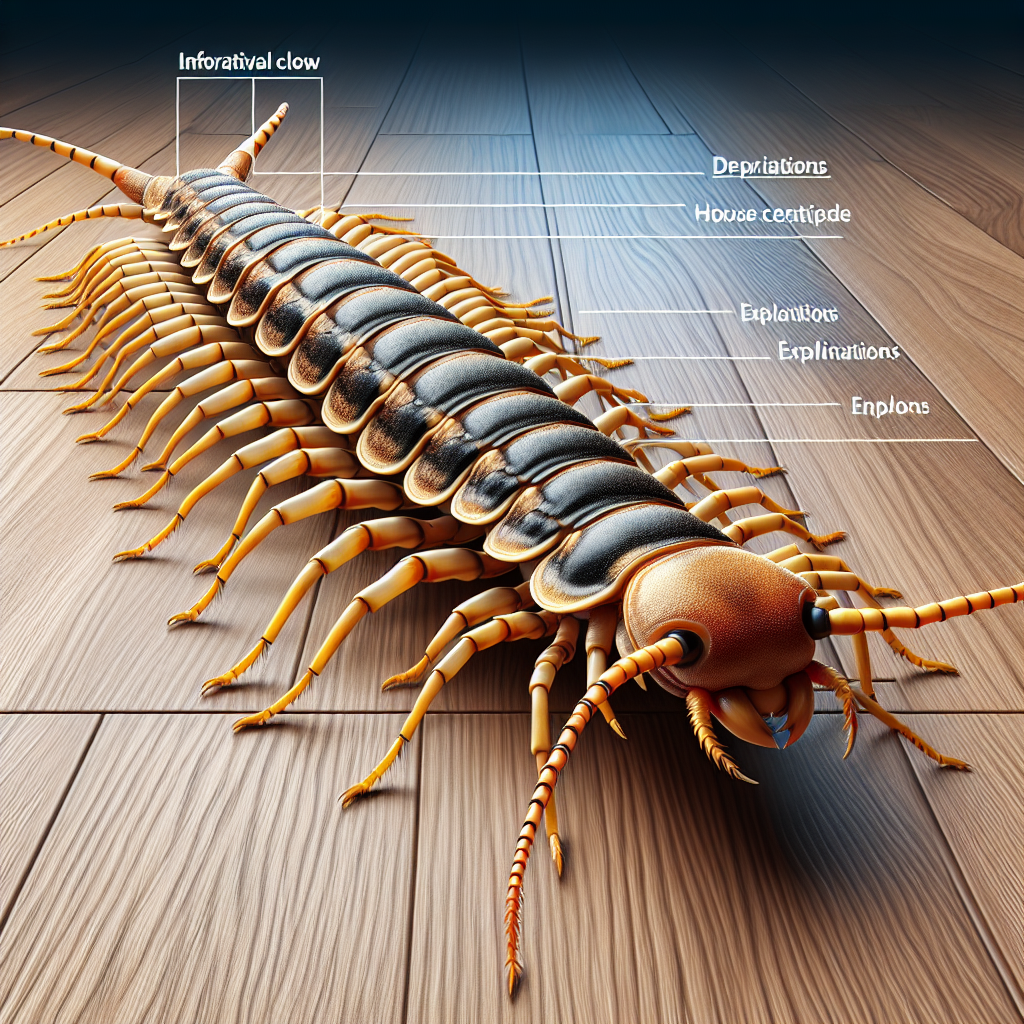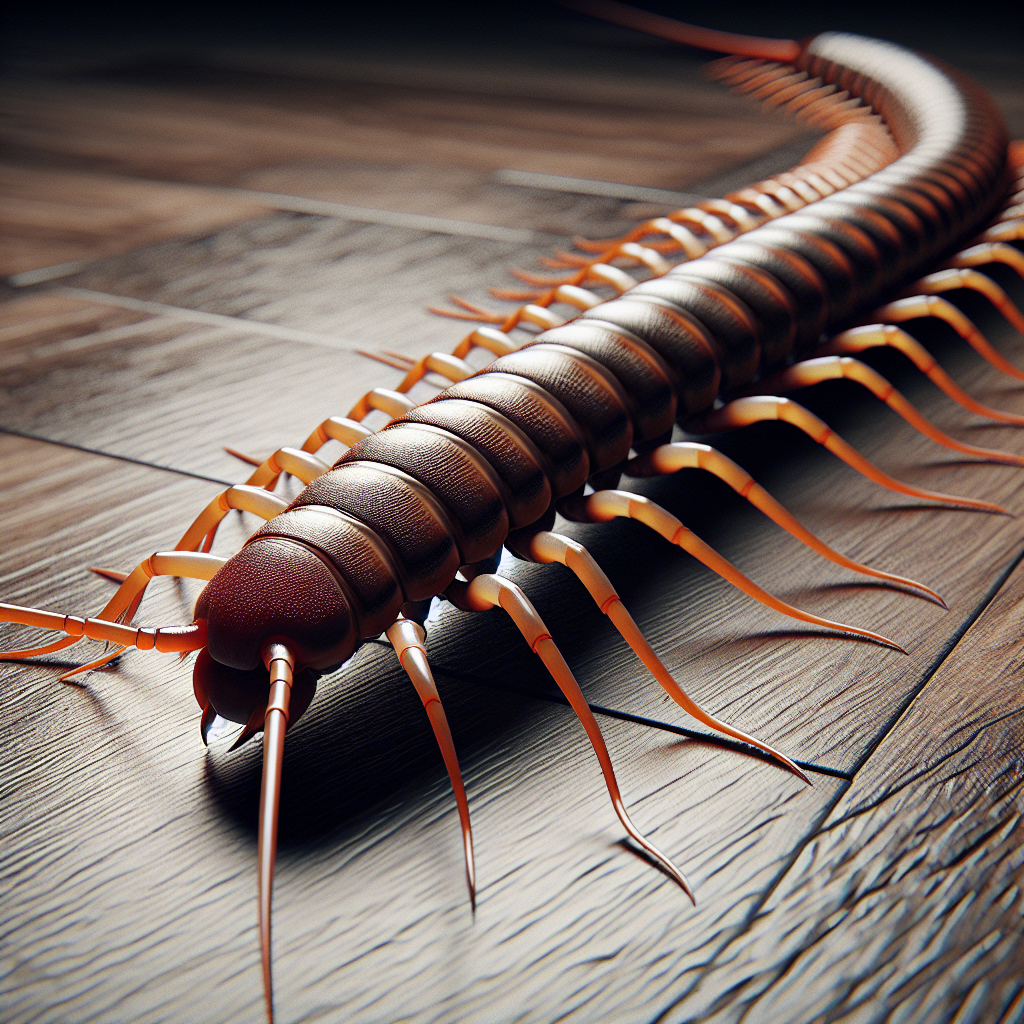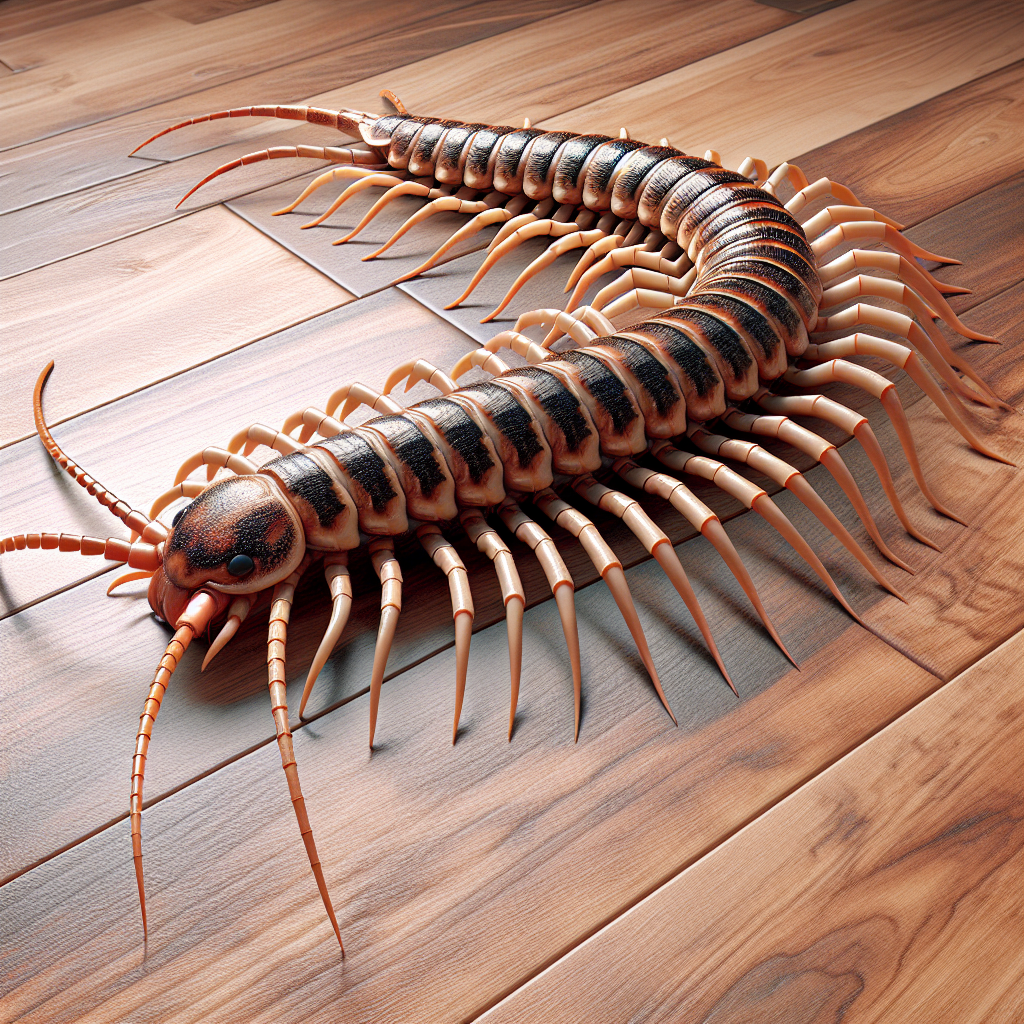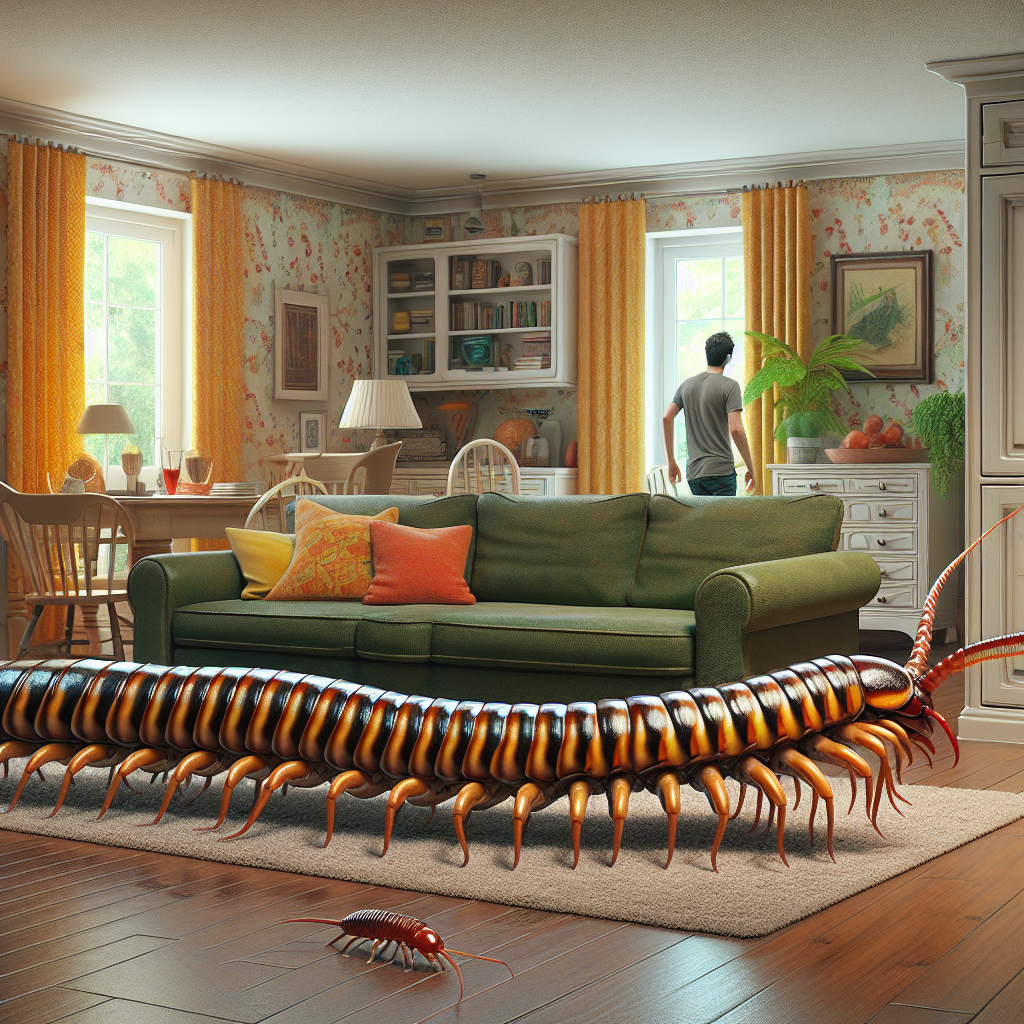Contents
House Centipedes: Friend or Foe in Your Home?
Introduction
Welcome to the wild world of house centipedes! These little critters might just be the most misunderstood roommates you never knew you had. With their long legs and lightning-fast movements, they can send shivers down your spine, but before you reach for that shoe, let’s take a closer look at what these fascinating creatures are really all about.
So, what do house centipedes eat? You might be surprised to learn that they are the ultimate pest control agents lurking in your home. Their diet consists primarily of other household pests, making them nature’s very own exterminators. Think of them as tiny superheroes, swooping in to save the day from pesky intruders!
Key Takeaway: Understanding the house centipede diet is crucial for determining whether these creatures are friends or foes in your home. They feast on common household pests like spiders, ants, and even cockroaches!
In this blog post, we’ll dive deep into the intriguing life of house centipedes exploring their dietary preferences, hunting habits, and their role as natural predators of those annoying household pests. By the end of this journey, you’ll have a better understanding of whether to embrace these speedy little hunters or send them packing!

Understanding House Centipedes
So, you’ve spotted a speedy little critter darting across your floor, and you’re wondering, “What on earth is that?” Enter the house centipede! These fascinating little creatures are not just your average creepy crawlies; they have a unique role in our homes that’s worth understanding.
What are House Centipedes?
House centipedes (scientific name: Scolopendra morsitans) are multi-legged arthropods that can be found in many households. With their long, slender bodies and a whopping 15 pairs of legs, they can give even the bravest of souls a little fright. But fear not! They’re more friend than foe.
Physical Characteristics
These little guys can grow up to 4 inches long and sport a yellowish-brown color with dark stripes. Their long antennae help them navigate their environment like tiny radar dishes. And yes, they may look like something out of a horror movie, but their appearance is part of their charm!
Habitat and Behavior
House centipedes love damp environments think basements, bathrooms, and kitchens. They’re nocturnal hunters, which means you’ll mostly see them at night when they’re out on the prowl for food. Speaking of food…
If you’re wondering what do house centipedes eat, you’re in for a treat! These agile hunters dine on many common household pests.

House Centipede Diet
So, what do house centipedes eat? If you’ve ever spotted one of these speedy little critters darting across your floor, you might have wondered what culinary delights they indulge in. Spoiler alert: their diet is not for the faint of heart!
The house centipede diet consists primarily of other household pests, making them the ultimate pest control agents. They are carnivorous and have a taste for a variety of creepy crawlies that might otherwise invade your home.
Common Food Sources for House Centipedes
These little hunters are not picky eaters. Here’s a rundown of their favorite snacks:
- Spiders: Yes, they do eat spiders! If you’ve got an unwelcome eight-legged guest, a house centipede might just be your best friend.
- Ants: Ants beware! These fast movers will happily munch on your tiny intruders.
- Cockroaches: The dreaded cockroach doesn’t stand a chance against a hungry house centipede.
- Termites: A feast fit for champions! They’ll take care of those pesky wood-chompers.
- Bed Bugs: While they’re not their primary target, house centipedes will indulge in bed bugs if the opportunity arises.
Their Hunting Techniques
How do house centipedes hunt? These agile predators use their speed and agility to chase down prey. With long legs that allow for quick movements, they can scurry away from danger while simultaneously stalking their next meal. It’s like watching a tiny action movie unfold right in your living room!
Mistaken Identity: Are They Dangerous?
You might be wondering if having house centipedes around is risky business. Fear not! While they may look intimidating with those long legs and rapid movements, they are not harmful to humans. Their bite can cause mild irritation but is generally no worse than a mosquito bite.
The presence of house centipedes indicates that there are other pests in your home that need to be managed effectively.
If you’re dealing with household pests and wondering how to manage them, consider welcoming these little guys into your space. Not only do they help control the population of unwanted insects, but they also contribute to maintaining a balanced ecosystem within your home.
The Bottom Line
If you’re still asking yourself what do house centipedes eat, remember this: they’re like the bouncers at an exclusive club for household pests keeping out the riffraff while you enjoy peace at home. So next time you see one scuttling by, give it a nod of appreciation; it’s doing its part to keep your home pest-free!

The Role of House Centipedes in Pest Control
When it comes to pest control, house centipedes are like the unsung heroes of your home. These little critters might give you the heebie-jeebies, but trust me, they’re more friend than foe. Let’s dive into why these speedy arthropods are essential players in keeping your home pest-free.
Are House Centipedes Beneficial?
Absolutely! House centipedes are nature’s very own exterminators. They feast on a variety of pesky household pests, making them a beneficial addition to your home ecosystem. So, before you reach for that can of bug spray, consider this: letting a few house centipedes roam could save you from a full-blown infestation.
Natural Predators of Household Pests
What do house centipedes eat? Well, their diet is quite diverse! They primarily target:
- Spiders
- Ants
- Cockroaches
- Termites
- Bed bugs
This means that while you’re sleeping soundly at night, these little hunters are out on the prowl, taking care of those unwelcome guests.
How Do House Centipedes Hunt?
House centipedes have a unique hunting style that resembles a high-speed chase scene from an action movie. Equipped with long legs and quick reflexes, they can sprint across floors and walls in search of their next meal. They rely on their keen sense of vibration to detect movement so if you’re thinking about sneaking up on one, good luck!
Predatory Behavior of House Centipedes
The predatory behavior of house centipedes is fascinating! They use venomous saliva to subdue their prey quickly. Once they’ve caught their meal (often after an impressive dash), they’ll inject it with venom that immobilizes it almost instantly. Talk about fast food!
Indoor Pest Control with Centipedes
If you’re looking for natural pest control solutions, encouraging house centipedes is an excellent strategy. Here’s how you can make your home more hospitable for these beneficial bugs:
- Avoid using excessive pesticides that could harm them.
- Create a damp environment by fixing leaks and using dehumidifiers.
- Keeps your home clutter-free to provide them with hiding spots.
- Add mulch or leaf litter around your foundation centipede heaven!
The role of house centipedes in pest control cannot be overstated they’re like having tiny bodyguards against household pests! So next time you spot one zipping across your floor, remember: they’re working hard for you!

Attracting House Centipedes to Your Home
So, you’ve decided to invite these eight-legged wonders into your home. But wait what do house centipedes eat? Before you roll out the welcome mat, let’s dive into what attracts them and how you can create a cozy environment for these natural pest controllers.
What Attracts House Centipedes?
House centipedes are like that friend who only shows up when there’s a party specifically, a party of pests! They are drawn to moisture and darkness, making your home’s nooks and crannies their ideal hangout spots. Here are some common factors that attract house centipedes:
- Moisture: They thrive in damp environments, so areas like basements, bathrooms, and kitchens are prime real estate.
- Food Sources: Their diet consists of household pests like spiders, ants, cockroaches, termites, and even bed bugs. The more pests you have lurking around, the more likely you’ll attract these little hunters.
- Hiding Spots: Cluttered areas provide excellent hiding spots for both pests and their predators. Think about those piles of laundry or stacks of old magazines!
How to Attract Beneficial Insects Like House Centipedes
If you’re keen on fostering a friendly relationship with house centipedes (and the bugs they munch on), consider these strategies:
- Maintain Humidity: Use humidifiers in dry seasons or keep potted plants around. Just don’t go overboard too much moisture can lead to mold!
- Create Shelter: Leave some dark corners undisturbed or set up small piles of rocks or wood outside. These can serve as natural habitats for centipedes.
- Avoid Pesticides: While it might be tempting to spray down the entire house with insecticides, this will not only eliminate unwanted pests but also your newfound friends the house centipedes!
- Seal Entry Points: Check for gaps around windows and doors. While we want to welcome our predatory pals inside, we don’t need every bug in the neighborhood crashing the party!
Key Takeaway: By creating an inviting environment with moisture and hiding spots while avoiding harsh chemicals, you can naturally attract house centipedes that will help manage those pesky household pests.
Pest Management Strategies Involving House Centipedes
When it comes to pest control, house centipedes are like the unexpected superheroes of your home. They may not wear capes, but they sure do have a knack for keeping pesky critters at bay. So, how can you harness their powers? Let’s dive into some strategies!
How to Manage Pests with Natural Predators Like House Centipedes
First off, understanding the house centipede diet is crucial. These little guys are carnivorous and feast on a variety of household pests. They love snacking on:
- Spiders
- Ants
- Cockroaches
- Termites
- Even bed bugs!
This makes them a valuable ally in your indoor pest control arsenal. Instead of reaching for harsh chemicals, consider letting these natural hunters do their thing. Just remember, they thrive in environments where their prey is abundant.
The Importance of Maintaining a Balanced Ecosystem in Your Home
A balanced ecosystem is like a well-tuned orchestra; every instrument plays its part to create harmony. To maintain this balance:
- Avoid overuse of pesticides that could harm beneficial insects.
- Keep your home clean and clutter-free to reduce hiding spots for unwanted pests.
- Create an inviting environment for house centipedes by ensuring moisture levels are optimal; they love damp areas!
Key Takeaway: By fostering an environment that attracts house centipedes, you’re not just allowing them to thrive; you’re also encouraging them to feast on other household pests!
Common Misconceptions About House Centipedes
Many people panic at the sight of these speedy little critters, thinking they pose a threat. In reality, house centipedes are more scared of you than you are of them! They prefer to stay hidden and hunt at night. So next time you spot one darting across your floor, remember they’re more interested in munching on those pesky spiders than bothering you.
Pest Control Strategies Using House Centipedes
If you’re looking to incorporate house centipedes into your pest management strategy:
- Create Moisture Zones: House centipedes love damp areas. Consider placing small water sources or keeping certain areas slightly moist.
- Avoid Chemical Barriers: While it may be tempting to spray everything with pesticides, this can deter house centipedes from sticking around.
- Seal Entry Points: Keep out unwanted guests by sealing cracks and gaps where other pests might enter while allowing room for your beneficial buddies.
The bottom line? Embrace the role of house centipedes in your home’s ecosystem! By managing pests naturally with these little predators, you can enjoy a pest-free home while keeping the balance intact.
Conclusion
So, what do house centipedes eat? The answer is a buffet of household pests! These little critters are the unsung heroes of your home, dining on a variety of unwelcome guests like spiders, ants, cockroaches, and even termites. If you’ve ever wondered about the house centipede diet, you’re looking at a menu that reads like a pest control wish list.
With their predatory behavior and impressive hunting skills, house centipedes are not just creepy crawlies; they play a crucial role in keeping your indoor ecosystem balanced. Think of them as nature’s pest control agents no subscription required! They thrive on common household pests that most people would rather not share their living space with.
Key Takeaway: By allowing house centipedes to roam freely in your home, you can reduce the population of pesky bugs without resorting to harmful chemicals. They are indeed beneficial!
But wait don’t go throwing out the welcome mat just yet! While some people may find these little guys unsettling, understanding what attracts house centipedes can help you manage their presence effectively. They love damp environments and dark corners, so keeping your home dry and well-lit can discourage them from moving in permanently.
If you’re looking to attract these natural predators to help with indoor pest control, consider creating an environment that supports them. This means minimizing clutter where they can hide and ensuring they have access to their favorite snacks those pesky household pests!
In conclusion, while house centipedes may give you the heebie-jeebies at first glance, they are more friend than foe. Embrace these little predators as part of your home’s ecosystem. After all, when it comes to pest management strategies involving house centipedes, knowledge is power and a few friendly centipedes might just save your sanity!

